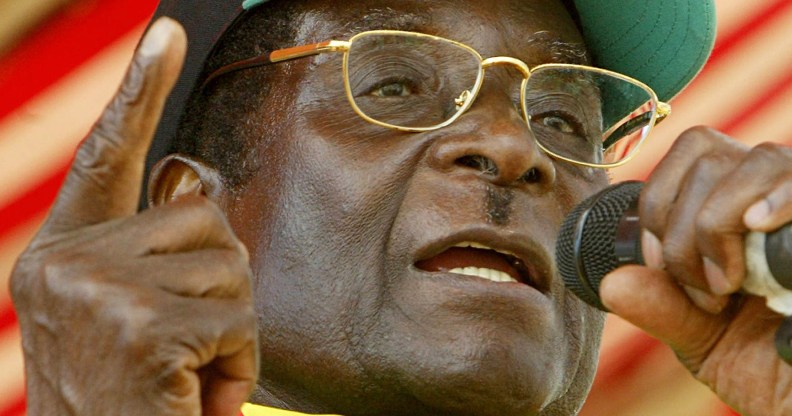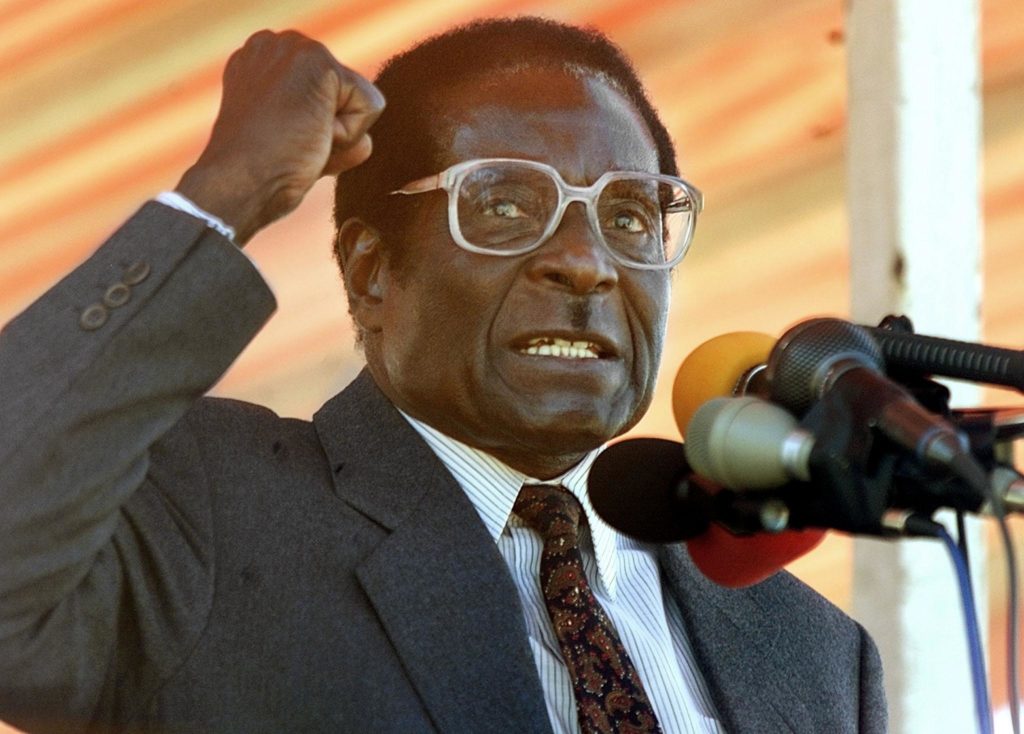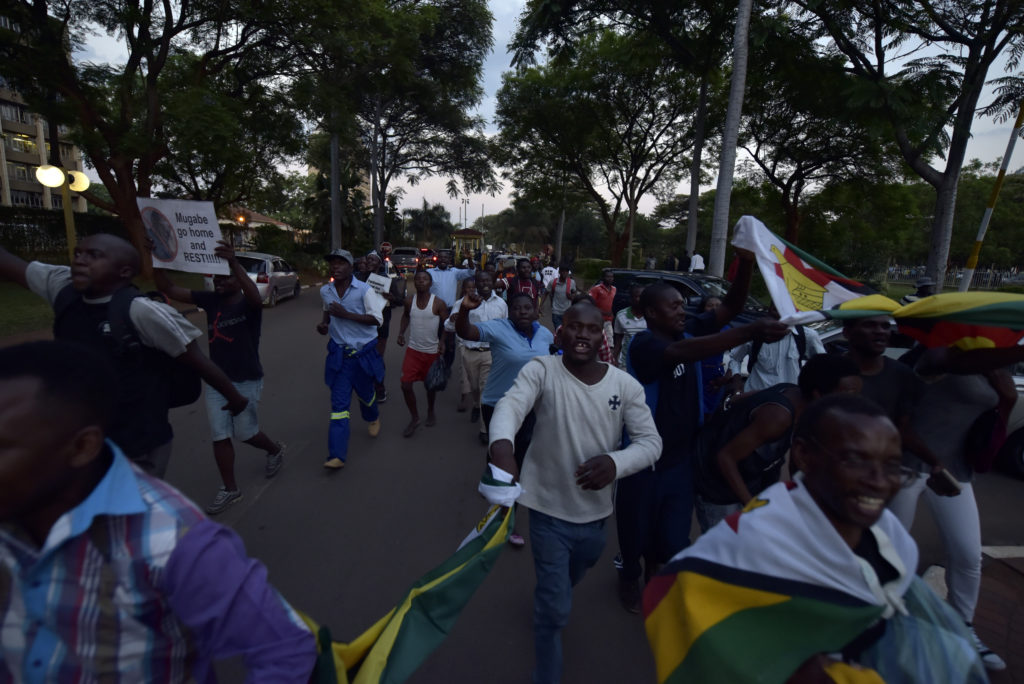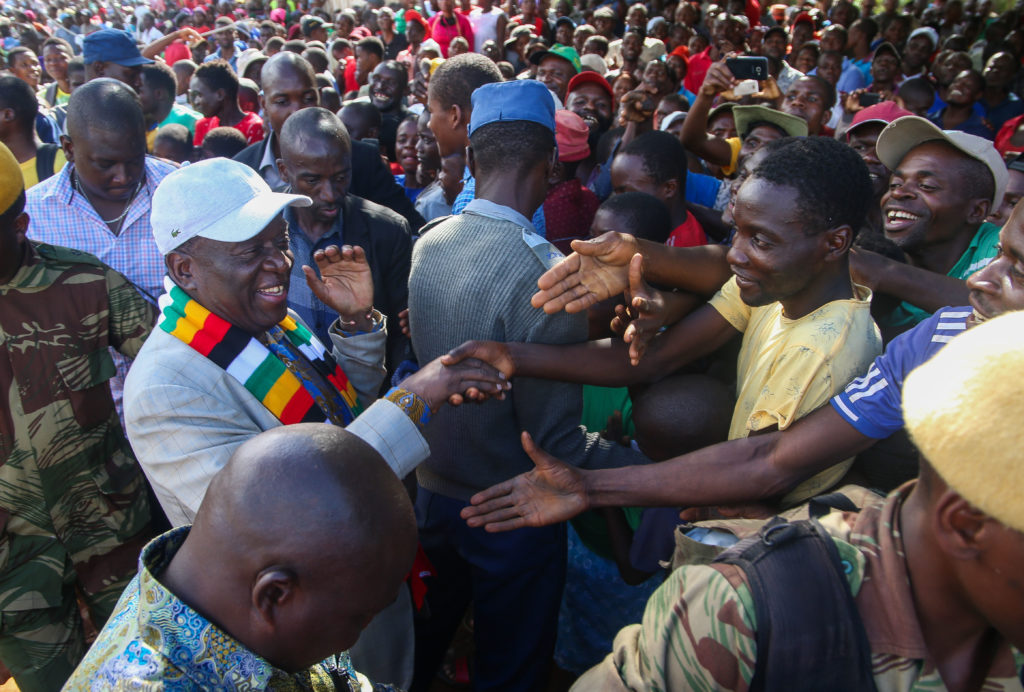Zimbabwe dictator Robert Mugabe is dead but his anti-gay legacy lives on

The notoriously homophobic Zimbabwean dictator Robert Mugabe has died aged 95 (DESMOND KWANDE/AFP/Getty)
Zimbabwe’s long-serving and fiercely anti-LGBT+ president, Robert Mugabe, has died in Singapore, aged 95.
Mugabe ruled the southern African country for 37 years, presiding over a regime that was accused of corruption and multiple human rights abuses. He only stepped down as leader in 2017 after the military placed him under house arrest.
In 2015 he famously gave a bizarre speech to the United Nations in which he ranted about gay rights before shouting: “We are not gays!”
But his anti-LGBT+ record runs far deeper than that.
When Zimbabwe first gained independence in 1980 it had a flourishing gay scene in urban areas. Then Robert Mugabe took power, and after nearly four decades of demonising and persecuting the LGBT+ community, the country now has one of the worst LGBT+ rights records on the African continent.
LGBT+ Zimbabweans have absolutely no legal protections from discrimination, violence and harassment. Homosexuality is punishable by up to 14 years in prison, and gay men and women have faced extortion, arrest and physical torture under Mugabe’s rule.
The dictator called homosexuality a “filthy, filthy disease” and declared “the dead will rise against us” if Zimbabwe tolerated it.
He openly threatened diplomats who discussed homosexuality, described LGBT+ people as “worse than pigs, goats and birds” and urged for the heads of gay men to be chopped off.

Mugabe addresses Zanu PF followers at a rally in Harare, June 2000. (ODD ANDERSEN/AFP/Getty)
Robert Mugabe refused to decriminalise homosexuality despite increasing pressure from the international community, and confirmed his stance after Barack Obama’s 2013 Africa tour: “Obama came to Africa saying Africa must allow gay marriages… God destroyed the Earth because of these sins. Weddings are for a man and a woman.”
Mugabe’s homophobic rhetoric was repeatedly reinforced by the national press. The stigma and discrimination towards gay people created challenges in accessing basic health services, in turn fuelling a worsening HIV crisis in Zimbabwe.
The country currently has one of the highest HIV rates in the world with around 13.50% of adults infected with the virus, but Mugabe refused offers of “rotten, filthy aid” if it meant he had to accept LGBT+ rights.

Zimbabweans took to the streets to celebrate Robert Mugabe’s resignation on November 21, 2017 (Gallo Images/Netwerk24/Felix Dlangamandla)
Mugabe’s resignation in 2017 was celebrated by LGBT+ activists, who were hopeful that his successor, Emmerson Mnangagwa, would be more tolerant.
They called his election a “historic win” for the LGBT+ community as it saw fewer cases of homophobic hate speech and reduction in the politicisation of LGBT+ people being used as campaign tools.
When directly asked if he would do anything to progress LGBT+ rights in the country, Mnangagwa disappointingly responded: “Those people who want it are the people who should canvass for it, but it’s not my duty to campaign for this.”

Current Zimbabwean President Emmerson Mnangagwa shakes hands with members of the crowd, March 2019 (Tafadzwa Ufumeli/Getty)
But his party later showed “a willingness” to fix relations with the LGBT+ community by meeting with GALZ, the country’s leading LGBT+ group in 2018.
“As an initial meeting it was great that they responded positively and somewhat surprising as this marked a departure from the previous leadership which did not engage with us,” said the director of GALZ, Chester Samba.
“A willingness to engage is indeed an important shift.”

